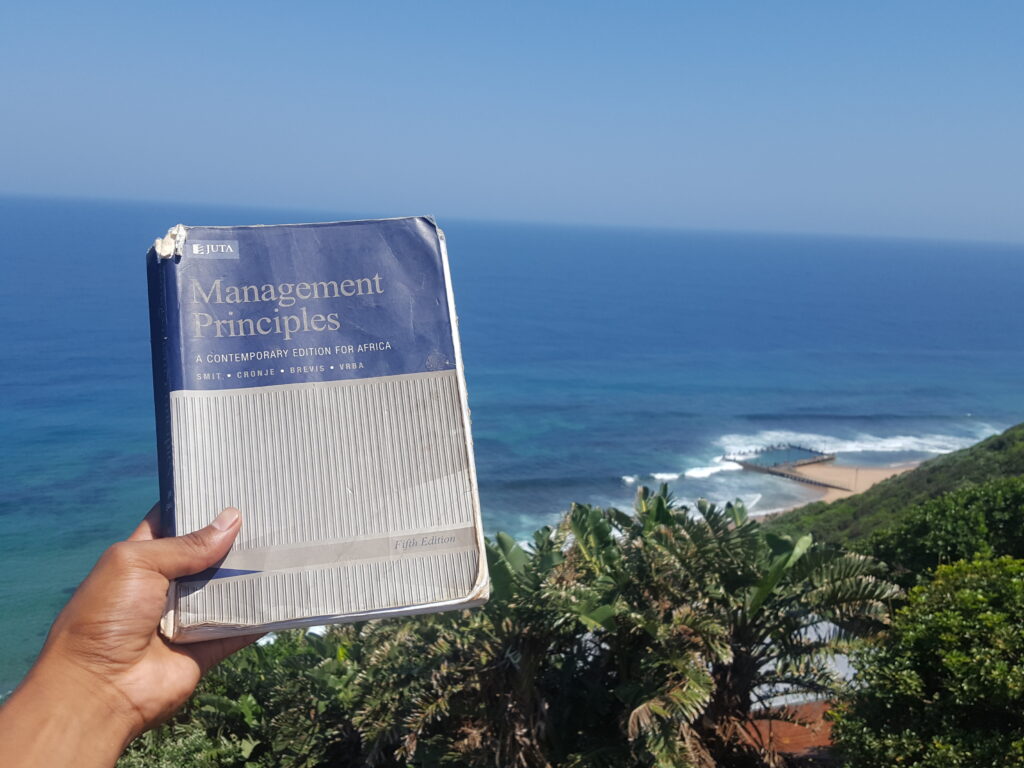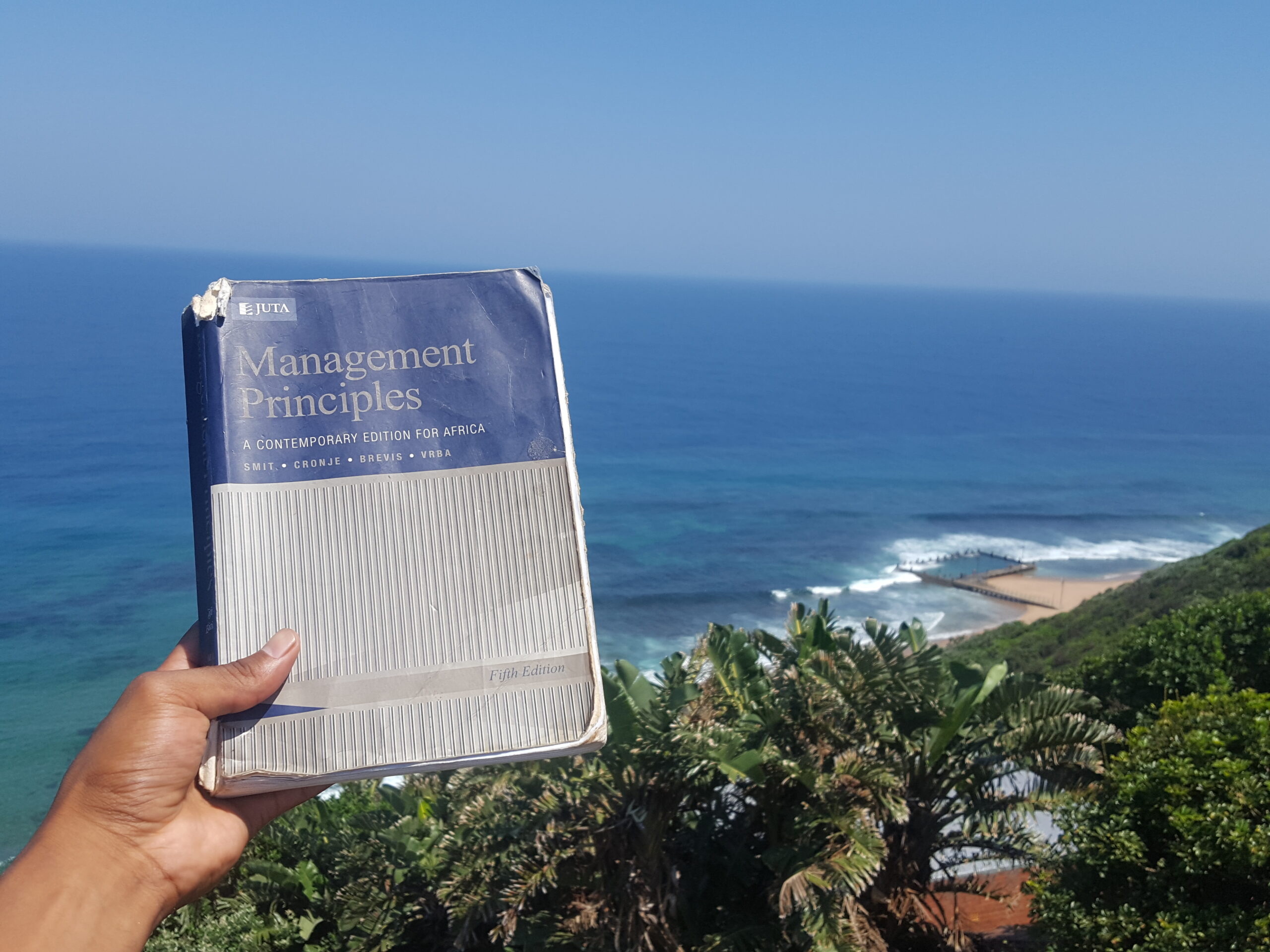
Management: A Contemporary Edition for Africa by Smit, Cronje, and Others
Management has always been a topic I’ve wrestled with. I never had formal training, and being thrust into an environment where I had to manage people felt overwhelming. A few months before he passed away, my dear friend Donrald gifted me this book, Management: A Contemporary Edition for Africa, by Smit, Cronje, and others. It holds immense sentimental value because of Donrald, and in many ways, the emotional weight of the book has been as important to me as the actual content. Donrald was shot in the chest while I was away in the Eastern Cape, and every time I pick up this book, I think about him and the lessons that he wanted to share with me.
The book is a very academic text, packed with detailed theories and concepts focused on management in an African context. It’s the kind of resource used by students and professionals alike to gain a deep understanding of management principles tailored to unique environments. The academic tone and structure make it ideal for those looking for a comprehensive foundation, though it can feel dense at times, especially for someone not formally trained in management.
The book discusses leadership styles and the importance of adapting to different situations—a lesson I still struggle with when managing various projects. In particular, I often think about the sections on delegation and communication, both of which I’ve found challenging as someone who naturally leans towards being reserved and introverted. Learning to delegate tasks has been a steep learning curve for me, as the book discusses how effective managers must learn to trust others with responsibility to grow both their team and themselves.
A lesson I’ve drawn from the book is that self-management plays a crucial role in effective leadership. Over the years, I’ve come to realize that this may be the most important lesson of all. Before you can lead a team, you need to understand your own strengths, weaknesses, and habits. This reflection has been especially relevant as I’ve worked on various projects throughout my life. Some of my biggest breakthroughs in productivity came when I learned to better manage my own time, energy, and focus—principles echoed in the book.
There’s also a section in the book that touches on the complexities of managing diverse teams. In an African context, this means being sensitive to cultural differences, economic disparities, and the varying perspectives people bring to the table. For me, this highlighted the importance of empathy and adapting to different cultural perspectives when leading a group, not just imposing one rigid structure on everyone.
Beyond the content, what truly makes this book special to me is its sentimental value. Donrald gave it to me as a gift, believing in the importance of understanding people management. He knew I would need these skills, especially as I was stepping into new professional environments. His death made the book much more than just a resource for learning management principles—it became a reminder of his belief in me and the significance of working with others to accomplish more than I could ever do alone.
As much as this book provides sound management advice, I still find myself wrestling with many of its concepts. I think that’s because, at its core, management is about understanding people—both yourself and those around you—and this is a skill that takes time, experience, and sometimes failure to truly master. The authors emphasize that management is not just about controlling others; it’s about working together towards shared goals. In my professional journey, I’ve found that managing people pushes you to be more productive, more strategic, and more aware of the bigger picture.
One of my favorite quotes from the book is:
“True pro-activeness comes from seeing how we contribute to our own problems.”
In closing, I’ve learned that if you want to progress in life, at some point you’ll need to explore managing people. It’s not always easy, especially if you didn’t grow up with those skills or are naturally introverted like me. But the growth you experience is invaluable. I’ve come to understand that no matter how hard I wrestle with these management principles, I have to start with managing myself—and that’s perhaps the biggest lesson this book, and life, has taught me.
